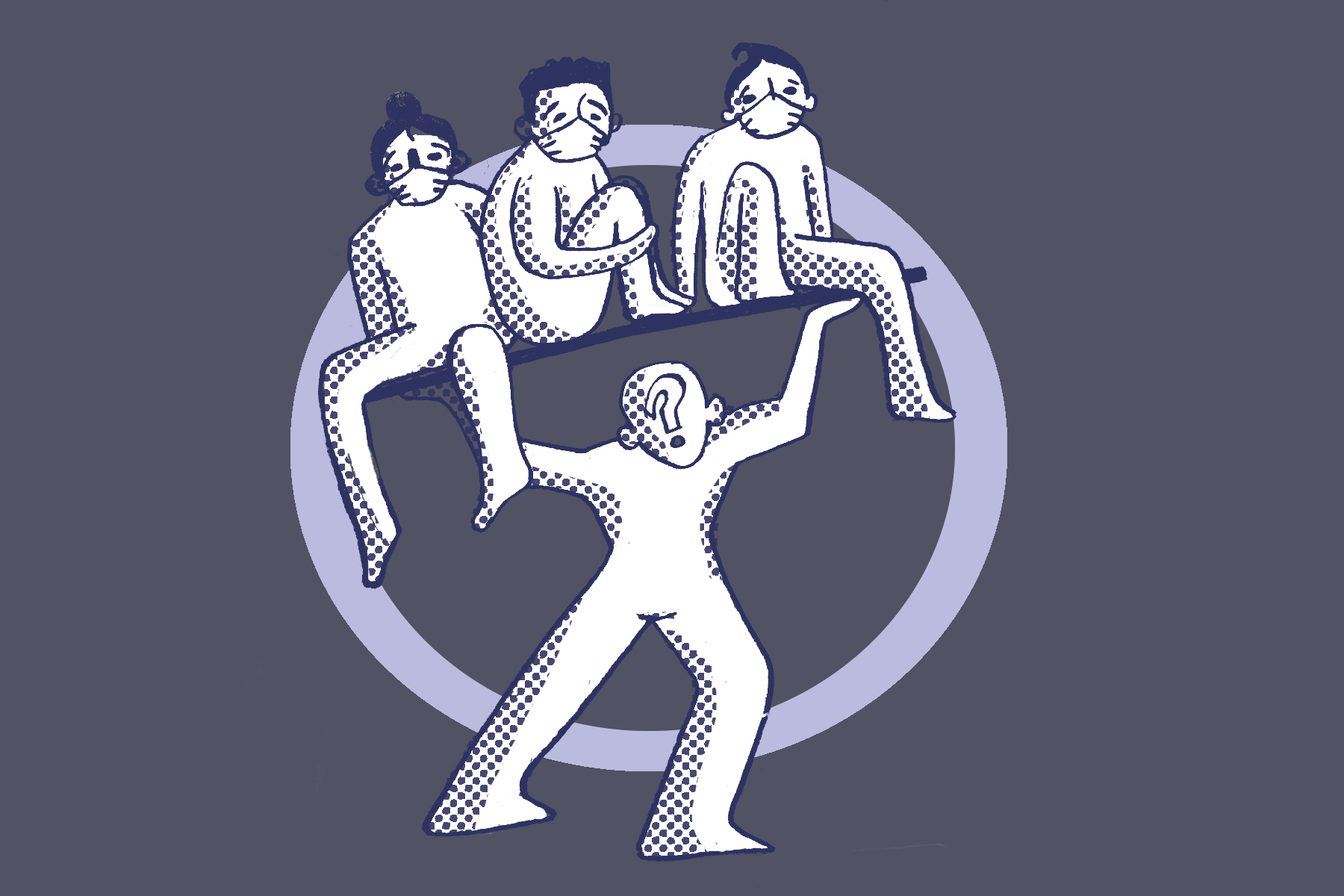College is back in session. Colleges are reopening, and students have come from all across the country to see their friends, take their classes and make up for a summer of social distancing. This time of year brings parties, fun gatherings with friends and back-to-school events.
Except not this year — because we’re still in the middle of a global pandemic.
To the surprise of no one, colleges are becoming hubs of coronavirus outbreaks. The University of Georgia has reported upward of 3,000 cases as of Sept. 10. Alabama has seen a rise of over 6,000 cases across 25 universities in the state. In Texas, that number has risen to over 8,000 across 73 universities. There is a clear link between campus reopenings and rising COVID-19 infection rates, leading to one question: Who is to blame?
If we’ve learned anything these past few months, it is that individual actions matter. One person’s irresponsibility can be a matter of life or death for the people they come into contact with. But when schools bring students back to dorms, it is their duty to take all possible measures to protect them.
Many universities have been shrugging off responsibility and blaming students for gathering and spreading the virus. On July 7, the dean of Tulane University sent out an email scolding students for partying on the Fourth of July weekend. In the email, she called students’ behavior “disrespectful, selfish and dangerous.” She asked, “Do you really want to be the reason that Tulane and New Orleans have to shut down again?”
Student Mia Sherin wrote an opinion piece in The Kenyon Collegian, the college newspaper for Kenyon University in Ohio, where she asked administrators to “stop telling students they’re all to blame.” In the piece, she responded to statements she’s heard from university administrators directed at her and her classmates, such as “Take it from here,” and “It all depends on you.”
Such sentiments ignore the importance of institutional accountability. Institutions are supposed to lead by example, set up systems that facilitate social distancing and take care of their students and staff. Additionally, colleges have made the deliberate decision to reopen schools, so they must be prepared for the worst-case scenario. That includes an outbreak on campus.
According to a New York Times article, counties where college students made up more than 10% of the population experienced an increase in COVID-19 cases. However, most cases of the coronavirus in colleges don’t come from parties or student gatherings, but from pre-existing conditions surrounding the college. For example, when the University of Alabama reopened, the surrounding city of Tuscaloosa was already facing a rise in infection rates that were only further exacerbated by the arrival of students.
As of Sept. 7, there have been over 2,000 confirmed cases of the coronavirus at the University of Alabama. College officials blamed the outbreak on “student behavior” despite the rising cases both on and off-campus in the surrounding areas.
In an interview with NBC News, Dr. Ali Khan, a professor of public health at the University of Nebraska, said it is the responsibility of the universities to reduce transmission. “Do not blame students for your inability to do what you need to do — which is drive down cases.”
Shaming students may actually lead to even more cases, as it would make them less likely to come forward about having COVID-19 or engage in contact tracing.
Instead of placing the blame solely on students for gathering, universities should encourage and facilitate safe ways to socialize. Colleges should host activities like drive-in movies (or socially distanced outdoor movies) or arrange outdoor seating in a way that promotes social distancing. It is up to the university to enable students who are going to see their friends to do so as safely as possible.
Another issue that has emerged since colleges reopened has been a severe lack of preparedness on the part of universities.
Ann Gaughan is a freshman at the University of Iowa who tested positive for COVID-19 after arriving on campus in August. The university’s lack of protocol led to an “awful” quarantine experience for her. In an Instagram post submitted to the University of Iowa Meme Page, Gaughan wrote, “[The University of Iowa] are telling students and parents they are prepared for COVID-19, but they lied. They are not.”
@city_of_iowa pic.twitter.com/KAHfH8jpzU
— blarns_is_autistic (@benjola31) August 19, 2020
When she tested positive for COVID-19, she informed her RA, who wasn’t sure where to put her. It took four hours for her to be placed in an isolation room. Gaughan described the isolation room as “dirty, gross, and disgusting” and recalls waking up to ants crawling on her blanket. She was directed by staff to not tell her parents or anyone she had come into contact with about her positive test.
In an interview with The Daily Iowan, Gaughan said, “I felt like a guinea pig. [I was] told one thing and completely experienced another. There are no words to describe how I am feeling, but I guess I’m just sad.”
Although Gaughan’s experience was among the most horrific stories that have emerged, it isn’t an isolated event.
New York University recently went viral on TikTok for the food they sent to students who were isolated for two weeks. Despite promising three meals, the school was severely underprepared and did not give students enough to eat. While some students complained about the types of meals they were getting, others said they weren’t getting any at all.
One student shared on her TikTok that she was only given a granola bar, a cookie and a lemon for dinner. Such conditions are unacceptable for any university, but especially one where students are paying upwards of $76,000 a year in tuition and room costs.
The lack of accountability, preparedness and the willingness to blame students for outbreaks on campus is alarming at best. Students need to be able to trust their institutions to take responsibility when things go wrong. And under the current circumstances, things going wrong is an inevitability when the right precautions aren’t being taken.
At the moment, social distancing is truly the only fool-proof way to stop the spread of the coronavirus, something that is close to impossible on college campuses. Bringing students back to schools at this time is a gamble, and universities must do everything in their power to reduce the odds of harm. Especially when those same institutions are the ones benefitting the most from students coming back to campus and paying housing fees. In the worst-case scenario, the cost of reopening could even be students’ lives.

















